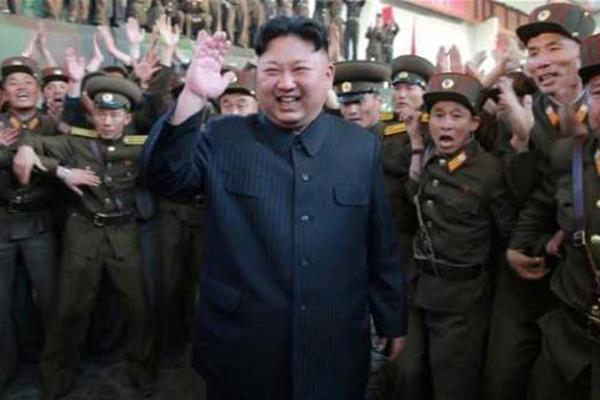N. Korea vows missile tests ‘any time, any place’


North Korea, which regularly threatens to destroy the United States in a sea of flames, has accused Washington of pushing the Korean peninsula to the brink of nuclear war with recent military drills with South Korea and Japan.
The North’s KCNA news agency said May 14’s test launch verified the homing feature of the warhead that allowed it to survive “under the worst re-entry situation” and accurately detonate.
It also tested the North’s capability to carry a “large-size heavy nuclear warhead,” KCNA said.
“The test-fire proved to the full all the technical specifications of the rocket ... like guidance and stabilization systems ... and reconfirmed the reliability of new rocket engine under the practical flight circumstances,” KCNA said.
The test “represents a level of performance never before seen from a North Korean missile,” John Schilling, an aerospace expert, said in an analysis on the U.S.-based 38 North website.
“It appears to have not only demonstrated an intermediate-range ballistic missile that might enable them to reliably strike the U.S. base at Guam, but more importantly, may represent a substantial advance to developing an intercontinental ballistic missile.”
The missile flew 787 kms on a trajectory reaching an altitude of 2,111.5 kms, KCNA said.
North Korea has been developing a long-range missile capable of striking the mainland United States mounted with a nuclear warhead. That would require a flight of 8,000 kms or more and technology to ensure a warhead’s stable re-entry into the atmosphere.
“The test-firing of ICBMs will occur at any time and place, at the will of North Korea’s highest leadership,” North Korea’s ambassador to China, Ji Jae Ryong, told reporters in Beijing on May 15, a day before the UN Security Council meets in New York to discuss the test.
North Korea has defied calls to curb its missile and nuclear weapons programs, testing its relationship with its lone major ally, China, which has always called for talks to resolve the issue, and prompting South Korea’s new president, Moon Jae-in, to “strongly condemn” May 14’s action.
